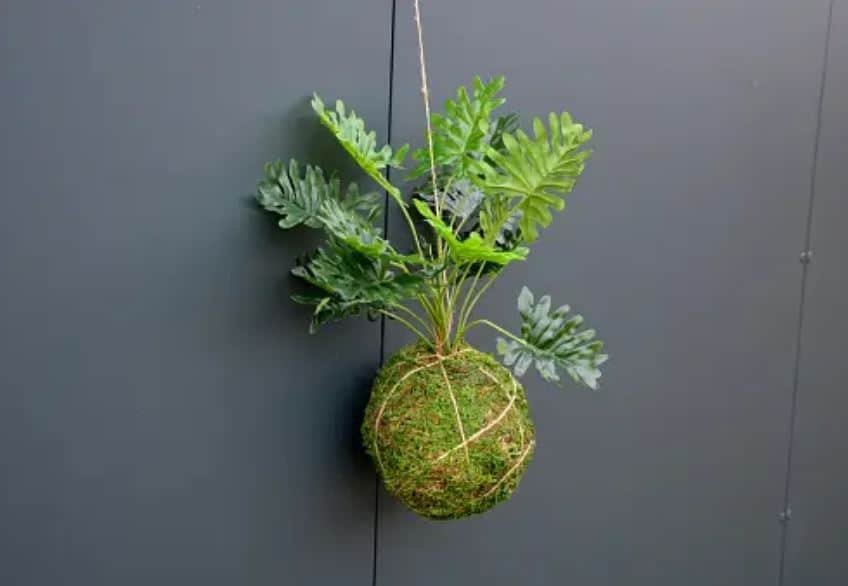Garden
The Different Types Of Growth Substrates For Plants

There are many different types of plant growth substrates. Some are more widely known and in use than others, but the future of substrate usage is changing. There is an increasing demand to move to greater sustainability within agriculture and to produce food more reliably in a way that doesn’t harm the planet and the environment that we live in. We must also make changes to ensure that we can meet the growing pressure to feed an increasing population that has led to innovative plant-growing substrates suitable for use in a wide range of agricultural settings and support in the broader provision of urban farming.
Examples of substrates
Peat – whilst there is an increasing range of peat-free solutions, peat is still in use, yet it is known for its environmental damage and leading to excessive flooding. Peat stores a high level of carbon in comparison to other mineral soils, and when the organic matter decomposes, subsiding peat requires drainage support if flooding is to be avoided.
Coir, or coconut fibre, may seem like a perfect solution. After all, it is a natural by-product of coconuts which grow in abundance. It is a popular alternative to peat and compost, yet it is increasingly becoming harder to farm. Harvesting requires aggressive cultivation, such that the supply chain is unstable. It is not, therefore, suitable as a viable large-scale alternative for widespread use in agriculture or urban farming solutions.
Rock wool – this is part of the range of hydroponic substrates. Yet it is a manufactured, non-biodegradable media with a high carbon footprint, so its long-term use is not environmentally friendly.
Hydrogel formulations – a new range of highly sustainable hydrogel plant substrates, such as Gelponics, formed from a project funded by Innovate UK’s Transforming Food Production challenge. It is a new plant substrate that can effectively replace traditional soils and growing media whilst offering better environmental protection. Recyclable non-synthetic hydrogel products support the future of truly sustainable agriculture, with no use of harmful synthetic polymers, and using low-carbon products enables crop producers and urban farmers to gain better control of their crop production. It requires less water and can better control fertilisers, making it easy to plan, grow, and reap crops.
Sustainable food production needs non-synthetic plant growth substrates.
Growing crops can be risky, relying on favourable climates and large land areas to guarantee a sufficient yield. However, greater use of hydrogel solutions, such as granule-based hydrogel particles, are easy to store and ready to use for arable field spreading and tilling, which will reduce soil erosion and show improved water retention. The particles naturally degrade over time in the ground. They can also be used to enhance plant shelf and transport life.
Hydrogel sheets are perfect for use in urban farming solutions and tiered farming to support ecological agriculture with an easy-to-use substrate roll that can be used with carry trays and industry propagation solutions. Again these are easy to clean and can be disposed of sustainably. Like sheeting, hydrogel plugs are perfect for urban and tiered planting systems. They can be shaped to fit pots and troughs as a complete growth system that holds oxygen and water to support root growth and agricultural crop production.
The switch to hydrogel plant substrates will reduce CO2 production and help protect much-needed peatlands. It offers a complete growth cycle solution that improves crop welfare and automated care. It importantly provides a stable supply chain solution, enabling food, crop and plant growers to maximise yields without damaging the planet or requiring highly intensive farming methods.
-

 Celebrity4 weeks ago
Celebrity4 weeks agoIs YNW Melly Out Of Jail? What Is The YNW Melly Release Date, Career, Early Life, And More
-

 Sports4 weeks ago
Sports4 weeks agoMore Than Just a Game: How College Sports Can Shape Your Future
-

 Tech3 weeks ago
Tech3 weeks agoAI Software: Transforming the Future of Technology
-

 Tech3 weeks ago
Tech3 weeks agoAll About Com. Dti. Folder Launcher: Features, Benefits, Tips, And More













